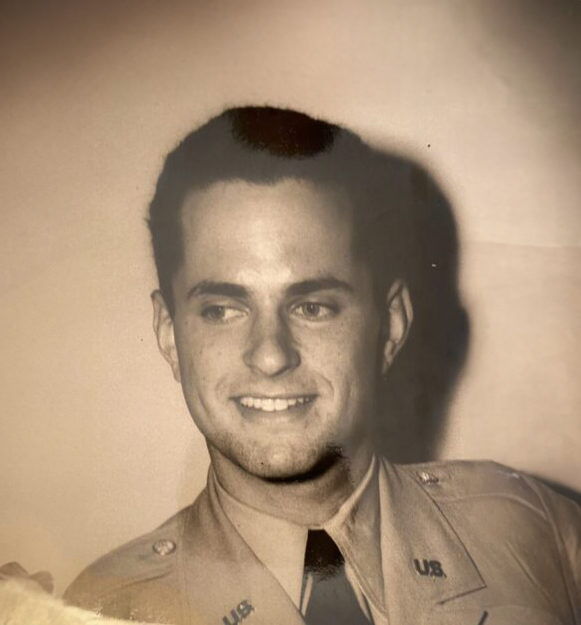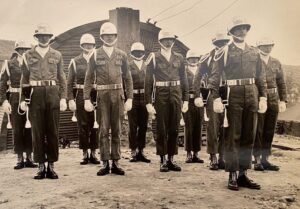Connecticut Man Shares Korean War Memories

Meadow Ridge resident gives insight into the war and its lasting lessons.
One detail remains vivid in Dan Sharp’s mind, 70 years after being in Korea. “Winters were pretty horrible there. I was on call 24 hours as the only MP (military police) officer for the 24th Infantry Division and had to drive around our division all night long in an open jeep in zero-degree weather because we were up on the line, above the 38th parallel,” he recalls. “I wore seven layers of GI clothing and still froze.”
Sharp was a student at the University of California, Berkeley when the Korean War started, “and it would be logical that I would be drafted as a private into the Army. Or I could finish my college degree by joining ROTC.”
When he graduated, he completed his Army training, got his commission, and was shipped off to Korea for an assignment in the demilitarized zone (DMZ). The armistice was signed right before he arrived in Korea, but it was still a war zone. Conditions being as harsh as they were, his fellow MP officers—even the colonel—put in for transfers to Japan shortly after his arrival. “As a new second lieutenant, I was in a full colonel’s position for six months. I was a co-governor with my Korean counterpart over the division area on the DMZ.” He was just 22 years old.
Sharp’s unit had two main responsibilities—vice control and traffic control. Vice control was a nightly responsibility. “Every night with very few exceptions our entire company of MPs would go into the villages to get the soldiers back…Our challenge being on the line was to have 100% of the soldiers in their tents, ready to fight if we were attacked.”

That threat of attack meant the only road out of his division—which was based in the mountains—had to stay clear in case they needed to evacuate. “It was a muddy road carved into the side of a mountain. If any vehicle stalled, we were supposed to push it off the edge of the cliff.”
Sharp served 18 months in Korea and returned home without fanfare. “When the Korean War happened, nobody was paying attention and when we came back, nobody cared,” he recalls.
After earning a law degree at Harvard, Sharp helped establish the Peace Corps and had a corporate, academic, and consulting
career that sent him all over the world. In the 1970s, he returned to Korea and was amazed by what he saw. “When I was there in the 1950s, I figured Korea was hopeless but it’s one of the greatest successes of the 20th century. If you go to Korea now, It’s as modern as any place in the world.”
Sharp retired to Meadow Ridge, a continuing care retirement community in Redding, CT, where he is president of the Residents’ Association. He also co-leads the Great Decisions group, one of the most popular activities in the community, where residents have in-depth discussions on U.S. foreign policy, echoing many of the themes that played out in the Korean War and are still relevant today.
The U.S. sent troops to Korea as part of the UN Command after the North invaded the South, violating the U.N. treaty. Sharp believes it was the right decision, but he fears the lessons of that war are lost on the American public. He knows few will mark the 70th anniversary of the armistice, nor realize a peace treaty is still unsigned. Yet, North Korea remains under the control of a saber-rattling dictator, while a similar scenario to what unfolded there 70 years ago is now happening in Ukraine. Dan insists that Russia’s defeat in that war is imperative, or lead to global suffering both in the immediate and long-term future.
“You have to defend the principle of the sanctity of international borders that are not changed by violence. But I don’t think the whole world has learned that lesson.”